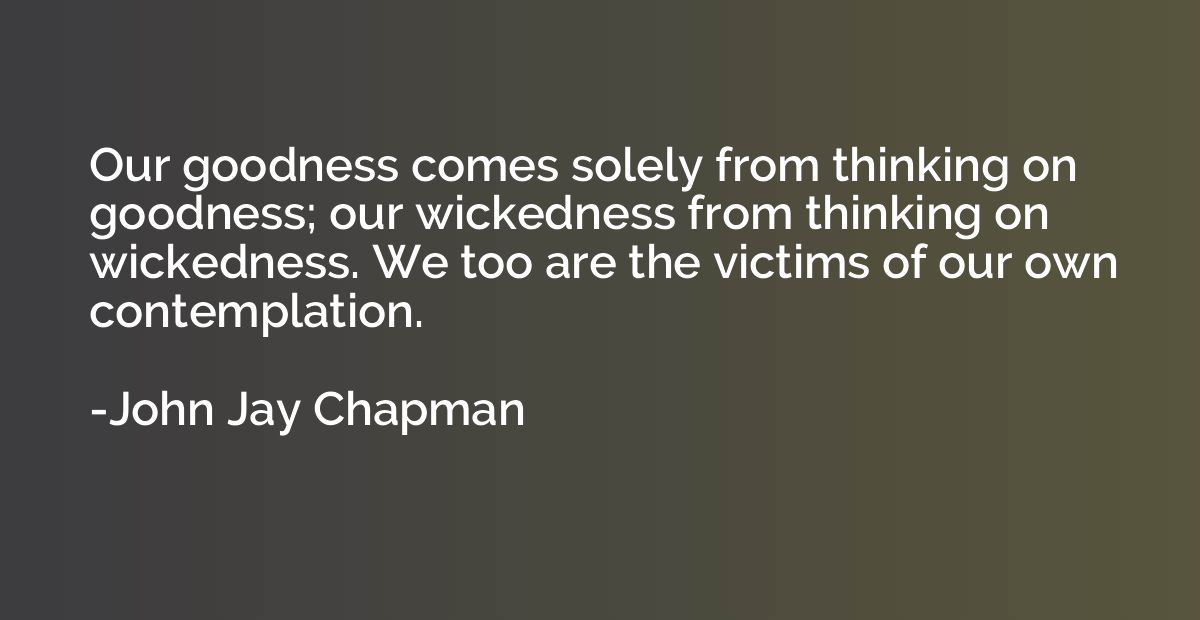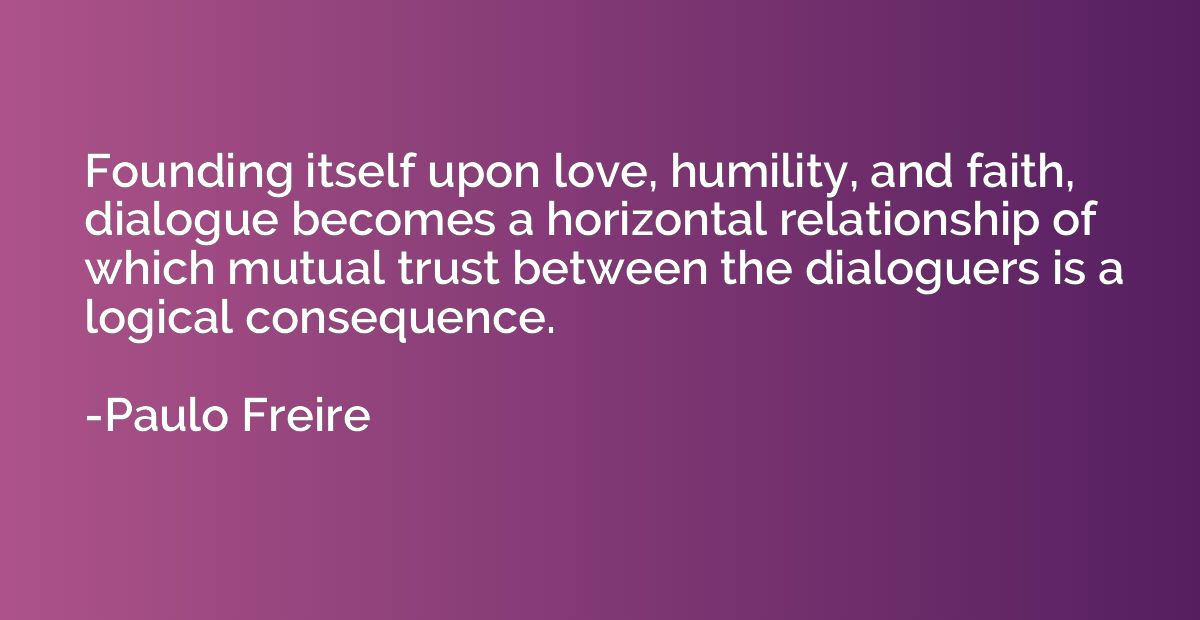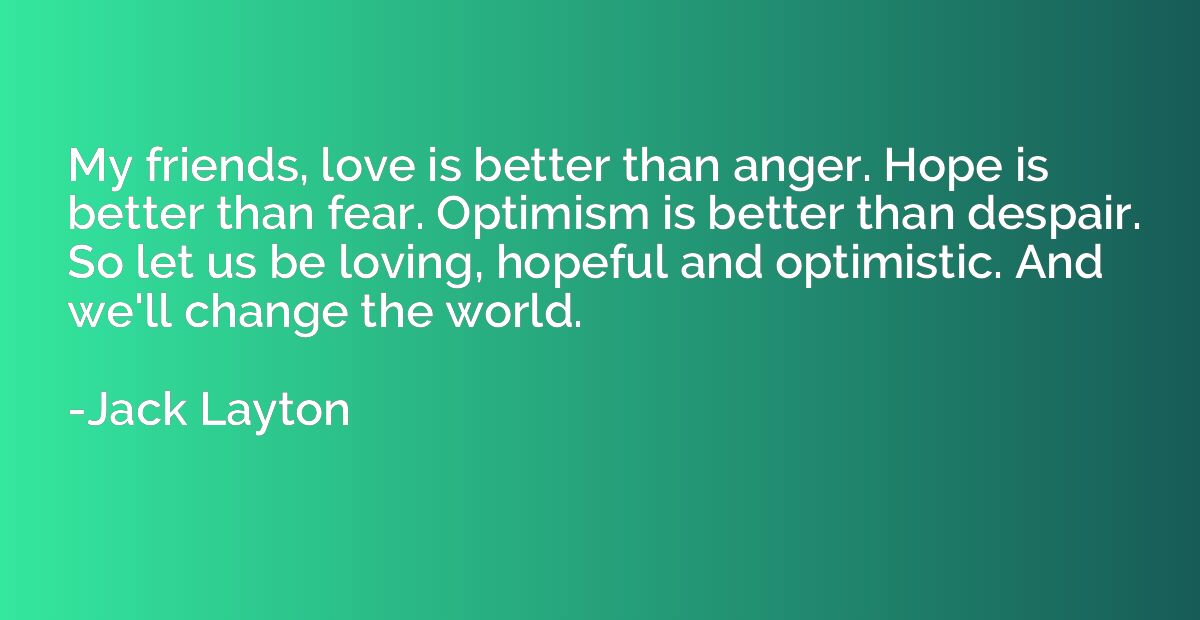Quote by John Jay Chapman
Our goodness comes solely from thinking on goodness; our wickedness from thinking on wickedness. We too are the victims of our own contemplation.

Summary
This quote suggests that our thoughts and contemplation have a direct impact on our actions and behavior. If we constantly think about goodness, it cultivates goodness within us, making us inclined to act in a virtuous way. Conversely, focusing on wickedness can lead to wicked acts, as our thoughts shape our intentions and ultimately our actions. It emphasizes that we have control over our thoughts and choices, highlighting the importance of cultivating positive and moral thinking to promote goodness in ourselves and avoid succumbing to wickedness.














